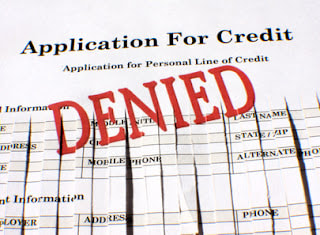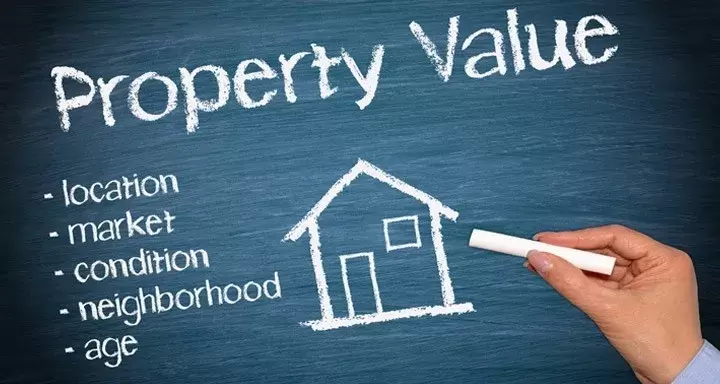|
You've done the work to clean up your credit score, scrape together a down payment and pry a preapproval letter from your mortgage lender. Cheers!
Getting preapproved is a smart move, especially in a seller's market characterized by tight inventories and, in some regions, bidding wars. Having a lender's letter in hand signals to sellers that you're a legit buyer whose offer merits serious consideration. Even so, a preapproval letter is just a conditional commitment. It can be withdrawn if your financial situation changes in a way that makes your lender nervous. The best advice? "Maintain the status quo," says Scott Schang, branch manager at BuyWise Mortgage in Anaheim, California. There are a few surefire ways to get rejected after you've been preapproved. Among them: Quitting your job There's nothing wrong with leaving a job to take a similar or better-paying position at another company, so long as you remain a full-time employee who gets a W-2 form at the end of the year. If you're going from a W-2 job to a W-2 job, that's fine. However, taking a significant pay cut will raise red flags. So will switching from a salaried job to a position where you're compensated mostly on commission. And quitting your job to launch a new venture is a no-no, at least when it comes to keeping your mortgage approval. Lending guidelines are much stricter for self-employed borrowers, and lenders typically want to see a two-year track record of self-employment income. The best play: Wait until after you've closed on your house and started paying your mortgage to quit your job and pursue your entrepreneurial dream. Loading up on debt This is an obvious bit of advice, but one well worth heeding. In the weeks or months after you get preapproved and before you close on your home, keep your spending impulses on lockdown. That means no new credit cards, no car loans and no big-ticket purchases of any kind. Ignoring this rule of thumb is likely to bring scrutiny from your lender. Running up a balance on a new credit card will lead your lender to re-examine your debt-to-income ratios, Carson warns. If you were on the borderline before your shopping spree, the new bills could kill the deal. Paying down old debt Say you have a preapproval letter but realize you could get a better mortgage rate with a higher credit score. Don't make the mistake of trying to be a hero -- it's likely to backfire. Paying off delinquent debt, settling up with creditors who have charged off an old debt, canceling credit cards -- all might seem like responsible moves, but they'll hurt your credit score. That's one of the backwards things with the credit scoring system. If you cancel a card, that will drop your credit score significantly for 60 to 90 days before it starts to creep up. It's unclear exactly how much your score will fall if you cancel a card, but the hit could amount to as much as 40 points. Paying down an old balance presents a similar quandary. You think you're cleaning up your finances but your lender just sees more available credit, Carson says, and you could be jeopardizing your credit score. And when it comes to credit scores, not all debt is created equal. Before you close on a home -- and ideally before you seek preapproval -- you'll need to pay off any liens, old tax bills or current debts in collection. However, if a debt has already been charged off -- that is, the creditor isn't expecting any more payments -- paying it will vault your old debt to a "current" status and actually lower your credit score. So the rule of thumb for retiring charged-off debt is the same as the guideline for taking on new debt: Wait until after you've closed on your home. Moving large sums of money Down payments are a challenge for first-time buyers, and many hit up relatives for help. However, receiving any sum that amounts to more than half your regular paycheck is likely to draw scrutiny from your lender, Carson says. Banks want to make sure you aren't laundering money. They also want to be certain any sudden windfalls are in fact gifts and not loans. If money is moving around, that's going to be a red flag for an underwriter, and they're going to pull out the magnifying glass. The good news is that receiving a gift doesn't need to kill your preapproval. But your bank likely will require you to provide a paper trail that includes a letter stating the money is a gift and two months of bank statements from the gift giver. The bottom line Keep in mind credit scores are based on complex calculations, and every borrower's situation is different. In general, though, your overall financial situation matters. If you have a gold-plated credit score and enough income to comfortably afford your loan, a new store credit card probably won't kill your deal. But if you have a borderline credit score and you're stretching to qualify, even a small hiccup could hurt your chances.
0 Comments
Big brand online estimates can be 15%-25% off of true market value.
We provide the most accurate estimate. Simple, fast, and completely free! If you’re considering selling your home, one of the most important decisions you’ll need to make is how to price your home. Price too high, you may miss out on potential buyers or sit too long on the market. Price too low, you may leave money on the table. Here are some tips to consider as you work with your agent to price your home for sale. Ask for a CMA Ask your REALTOR® to provide a Comparative Market Analysis or CMA. In this analysis, your agent will compare your home with other similar homes that have recently sold. They can also weigh in unique features of your home, housing market trends, and desirability of your neighborhood for a comprehensive home valuation. All these factors are used to determine the best list price for your home. While online home value calculators can provide initial insight, they should not be used to price your home for sale. These calculators are only as good as the data provided. They cannot weigh unique factors, like special features of your home or neighborhood, nor trends in the housing market. An agent’s CMA is the best method to determine the list price for your home. Your agent will consider many important factors, from the housing market to home features, to list your home for sale at the price that will bring the best offer from buyers. Don’t get Personal Selling your home is an emotional task. As the owner and occupier of the home for years, your value of the home may differ from that of an outsider. If you watched your kids grow up in the home, celebrated birthdays, hosted family gatherings, and painted the walls your favorite colors, you have value in the home that cannot be expressed in dollars. That value, while priceless to you, has no worth to a prospective buyer. That is why you should never attempt to price your own home. Agents are not emotionally or personally attached to your home. That means they can see it as a prospective buyer might. While they won’t see the bird-egg blue walls as a memory from 10 years ago, they will see the in-demand crown molding, desirable floor plan, and staging potential. Let someone who has no attachment to your property take on the task of pricing your home. A more objective viewpoint can lead to a more strategic price and a higher offer. If you’re not currently working with a REALTOR, connect with a local real estate agent. Understand the Local Housing Market The best price for your home depends on demand from buyers. Understanding the current housing market in your area, including trends and seasonality, can help you when listing your home for sale. Your local REALTOR can provide useful statistics and analysis for your city. They also consider factors like your neighborhood desirability and micro-trends in your local area. They’ll even help you determine the best time to list your home for sale. Talk to your real estate agent about housing market trends that could impact your home sale. When it comes to pricing your home for sale, a REALTOR provides valuable insight. Your agent provides a comprehensive valuation, detached perspective, and real estate experience that is incredibly valuable for home sellers. First-timers can be eager to jump into home ownership. But we see them committing the same mistakes, time and time again. Here are some of the most common ones
1. They’re unprepared to compete against all-cash offers. Buyers need to be ready to make a quick decision if they’re housing market is heating up. Buying a home is really like finding a job – it’s going to take a lot of time to prepare, and when the deal comes along, you’re ready to pounce on it. buyers should have already saved as much as possible for a down payment, repaired any credit report blemishes, and gotten preapproved for a loan as they start their house hunt to put them in a better position to compete. 2. They place a car ahead of the home. Lenders are going to scrutinize applicants’ debt-to-income ratio when assessing how well they can afford a mortgage payment. Consumers’ debt has gone on average from $40,000 in 2010 to $61,000 today. It would be much easier to own a home if you can show a history of saving and not have gotten yourself into too much debt. 3. They place too much emphasis on online loan information. Online sites can be good for finding out general information about loan products and estimated costs, but experts recommend visiting with mortgage lenders face-to-face to help demystify some of the process and to take into account your specific situation. Go to different places and talk to loan officers to get a feel for what the differences are between similar types of loans. Sometimes a company won't charge an origination fee, but then the interest rate is higher … and in some cases you can put many of the upfront costs—closing costs, title insurance—into the loan, which makes your balance larger. 4. They bank too much on online home values. Some real estate websites are giving buyers a false sense of home values. If a buyer believes that the actual value of the property is $1.1 million [as listed online] when it's really $1.3 million, it's a real disservice to the client. You really should [spend time] with someone that understands the market, someone who's there day in and day out. Home buyers can get the best feel of the market by working with a real estate agent and driving around neighborhoods and get a sense of things about homes that may be less valuable or even more valuable than perceived online. 5. They forgo the home inspection. About 10 percent of homes recently purchased weren’t inspected by a home inspector. Some buyers were trying to cut down on the costs of hiring an inspector to investigate a home – which usually averages about $450 — but defects uncovered later could potentially result in the loss of thousands of dollars. "It takes a trained eye to be able to see the problems that can exist in a home. The inspection can also give the first-time buyer a bit of a schooling on the house and how to maintain it. Buyers should also be prepared to ask questions about conditions that are common to specific areas, such as radon; sewer lines in older homes; and active clay soils in some locations that can lead to foundation issues. The home may also require additional inspection from a specialist to rule out potential problems. What can you do to Prepare?
Emergency preparedness is everyone's job. Disasters of all kinds, ranging from floods to winter storms, can happen when least expected. It is important that each household be prepared before disaster strikes with a 72-hour Family Emergency Kit, so each family can be self-sufficient until relief arrives. Assembling the following items to create your own 72-hour Family Emergency Kit will be a great start in preparing your household for the new millennium. Such preparation will be valuable in potential emergencies that may affect our area such as blizzards, power outages, floods, tornadoes, or hazardous materials spills. You Must Be Ready To Act on Your Own The 72-Hour Emergency Kit should be individually tailored to meet the basic survival needs of your family for three days to a week. Most families prefer to store their emergency supplies in a location that is relatively safe, yet easily accessible if evacuation is required. Items may be stored in a 32-gallon trash can, suitcase, duffel bag, footlocker or individual pack (with a note on top listing a few items to grab if you have to evacuate). Emergency Needs Water Storage (1 gallon/person/day) Sleeping Bag and Blanket (wool and thermal) First Aid Kit and Manual Emergency Candles Waterproof/Windproof Matches Extra Eyeglasses/Contact Lenses Non-Perishable Foods Water Purification Tablets Utility Knife Manual Can Opener Extra Clothing Battery Powered Radio Flashlight Essential Medications Suggested non-perishable food items: Ready-to-eat goods in unbreakable containers, canned meats, juice, fruits and vegetables, powdered milk, infant care foods, crackers, peanut butter, freeze-dried and dehydrated goods. (Store what you normally eat. Children will not eat food that is strange to them.) Sanitation Kit Plastic Bucket w/Tightly Fitted Lid Baby Supplies Plastic Bags and Ties Aluminum Foil Disinfectant Paper Towels Improvised Toilet Seat Toilet Paper Personal Hygienic Needs Soap Paper Cups and Plates Plastic Utensils Personal Toiletries Other Emergency Needs Pen and Paper Work Gloves Money Basic Tools Address and Phone Number Children's Securities (blanket, pacifier, etc.) Standard First Aid Kit First Aid Manual Scissors Aspirin or Pain Relievers Sanitary Napkins (Pressure Dressing) Triangular Bandages (36"x36"x52") Disposable Diapers (Dressing/Splint/Padding) Car Survival Kit Always Maintain at Least 1 Tank of Gas Non-Perishable Food Stored in Coffee Can First Aid Kit and Manual Flashlight and Batteries Class ABC fire Extinguisher Waterproof Matches and Candles Radio and Batteries Bottled Water Reflectors and Flares Jumper Cables Bag of Sand, Shovel and Tools Short Rubber Hose for Siphoning Paper, Pencil, Map, Tissues, Pre-moistened Blankets or Sleeping Bag Towels, Plastic Bags, Essential Medications Make Copies of All Legal Papers Marriage License Jewelry Appraisals House Mortgage Drivers Licenses Automobile Ownership Insurance Policies Wills Bank Accounts Vacation Home/ Property Ownership Trailers, Snowmobiles, Boat Ownership RV Ownership Take color pictures of every room plus pictures of valuables. Send one copy of legal papers and one copy of pictures to an out-of state contact. Plan How Your Family Will Stay in Contact if Separated by Disaster Pick two meeting places: A location a safe distance from your home in case of fire. A place outside your neighborhood in case you can't return home. When Assembling Emergency Supplies for the Household, Include Items for Pets How to Store Water Store your water in thoroughly washed plastic, glass, fiberglass or enamel-lined metal containers. Never use a container that has held toxic substances. Remember that your hot water tank is a source of 40 to 50 gallons of drinking water. Be sure to purify the water by: Boiling Disinfecting (household liquid bleach: 16 drops/gal. of water, stir and let stand 30 min.) Distillation (boil pot of water and collect the vapors by tying a cup to the upside down pot lid - the cup shouldn't dangle in the water - it will condense back to water in the cup) Other Considerations Stock supplies to last several days to a week for each family member. Have extra cash on hand in case electronic transactions (ATM card, credit cards, etc.) cannot be processed. Work with your family in talking about the steps each needs to take to be ready if disaster happens. I was going through my blog and I came across this feel good article that makes me smile every time I read it: 40 Reasons I Live Where I Live It was originally published in 2012 but the author took it down and I am glad I kept a copy of it.
I have lived here since 1991 and I love where I live, and would not trade it for another place. I can eat at a new restaurant every night and never eat in the same place. I'm 25 minutes from an amazing aquarium, a half-dozen fantastic theaters, the airport, a stunning natural history museum, a massive art museum, multiple shopping malls, every type of gym and fitness center you could ever need, and MORE. If I wanted to ride my bike for thousands of miles every year without riding on the road a single time, I could. The cycling infrastructure here is phenomenal. We don't just have one good Zoo, we have several of the nation's best Zoos and sanctuaries, including one that's build entirely on a mountain. The culture of music and art is strong and thriving, finding performance art, murals, and so much more is effortless. Beer: Lot's of really delicious beer. Whiskey too. Local. Period. I can live my life entirely supporting local businesses, locally grown food, locally owned/operated restaurants, there's even locally designed and built 3D printers and space planes. Almost every major technology company has at least an office here. Every weekend there's a free activity or event going on. https://www.facebook.com/FreeThingstodoinColorado The snowboarding is incredible. The hiking is to die for. Taking photos here is like cheating, almost anything you take while out is dynamic and gorgeous. Sand dunes, snowy mountains, winding rivers, lush valleys, it goes on and friggin' on. The air is clean, dry, and crisp. The lack of humidity means the heat isn't so bad, and you’ll never have a bad hair day. On top of that, this is the happiest city in the country, and while people seem to forget that, when I moved here I was in shock at how nice most people were to me. |
Categories
All
Archives
September 2022
|








